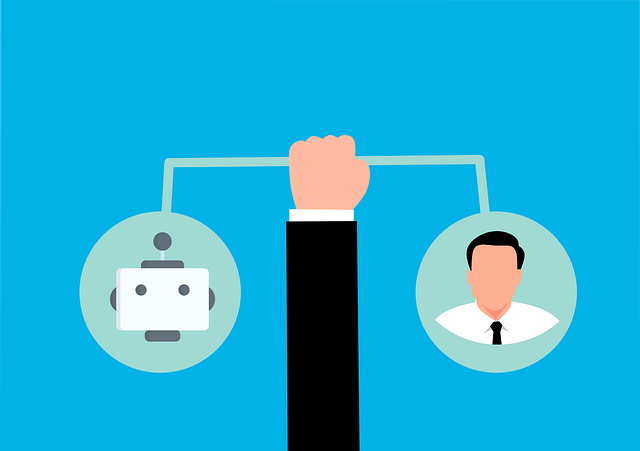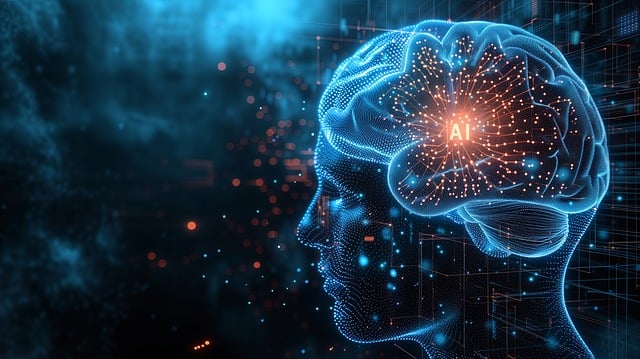
Within the last couple of years, Artificial Intelligence has successfully undergone developments that have brought forth once more a very old question: will it replace human intelligence? And it seems technology moves a step closer with self-driving cars and AI-created pieces of art. But is all that enough to replace complete human intellect?
While AI certainly has the edge in terms of speed, accuracy, and data processing, human intelligence remains deeply rooted in creativity, emotions, and ethical reasoning. This article looks at the key differences between human and AI intelligence, examines where AI is today, and discusses the potential future of this dynamic relationship.
What is AI Intelligence?

Artificial Intelligence is generally defined as a machine’s ability to perform specific tasks that necessarily call for human intelligence. AI is all about large datasets, machine learning algorithms, and neural networks that enable pattern recognition, learning from experience, and prediction.
Unlike human intelligence, AI operates on set logics and statistical models. It is good for automation, decision-making, and large-scale data analysis. On the other hand, AI is aware of nothing, conscious of nothing, and has nothing in terms of emotional capacity. It “learns” with training data but does not understand anything about what it does.
Key features of AI intelligence include:
• Speed and Efficiency: AI can process large amounts of data at speeds far beyond human capability.
• Pattern Recognition: It identifies trends and patterns that humans might miss.
• Task Automation: AI can automate repetitive tasks, saving time and resources.
What is Human Intelligence?

Human intelligence is all those higher-order cognitive abilities pertaining to reasoning and problem-solving capabilities, learning, and emotional perception. In distinction from the machine form of intelligence, human beings are conscious: aware of self and knowledgeable of the world around them.
It is capable of abstract thinking, artistic expression, empathy, and moral decision-making. The flexibility it allows humans to solve tough, novel problems and creatively solve new situations. The artificial intelligence of modern times can implement a few features of the cognitive aspect, yet it is not as rich in features of self-awareness and emotion that a human brain possesses.
Key features of human intelligence include:
• Emotional Intelligence: Understanding and responding to human emotions.
• Creative Thinking: The ability to generate original ideas.
• Ethical Reasoning: Making decisions based on moral and ethical considerations.
Key Differences Between Human and AI Intelligence
| Aspect | Human Intelligence | AI Intelligence |
| Nature | Self-aware, conscious | No consciousness, task-driven |
| Learning | Experiential, continuous | Data-based, limited to training |
| Creativity | Original, abstract thinking | Mimics patterns, lacks originality |
| Emotions | Empathy, compassion | No emotions, no self-awareness |
| Decision-making | Ethical, moral reasoning | Data-driven, logic-based |
| Adaptability | Quick adaptability, intuition | Adaptable only with new training |
Can AI Replace Human Intelligence?
Arguments For Replacement
There are many areas where AI is already smarter, which makes many people think it may one day take over human jobs.
- Speed and Accuracy: The AI may process data faster compared to people and performs calculations with no errors. For example, AI programs will show fake transactions in banks very fast.
- Automation of Repetitive Work: Repetitive jobs, such as many kinds of data entry and the assembly line, have been taken by the AI Robots.
- Predictive Analytics: AI can predict consumer behavior, stock market trends, and medical diagnoses with remarkable accuracy, beyond human capability in these matters.
Arguments Against Replacement
However, AI is quite weak in many areas.
- Unconsciousness: Artificial Intelligence is not conscious; therefore, AI cannot “understand” the world as human beings do. Machines follow the dictate of logic, while humans change, reflect upon, and give meaning to intangible thoughts.
- Creativity and Innovation: While AI can create “creative” content, like AI-generated art, this is based upon its training. Human creativity, in turn, is tantalized by imagination and experience, enabling it to be considerably more spontaneous and unique.
- Ethical and Moral Reasoning: Human intelligence enables ethical decision-making using morality and empathetic reasoning. AI only follows rules, so it might fail when moral decisions are required.
- Emotional Intelligence: Humans can conceptualize, empathize, and emotionally connect with others, something quite essential in areas such as health care, education, and counseling, where full substitution by AI is just impossible.
Real-World Examples
Where AI Has Replaced Humans
- Customer Service: Simple queries in recent times are resolved by ChatGPT and other AI chatbots, and automated customer service.
- Manufacturing and Warehousing: picking, packing, assembling are various tasks performed by robots. AI-based automation is also adopted by giants like Amazon and Tesla.
- Healthcare Diagnostics: AI algorithms analyze X-rays, MRIs, and medical reports, sometimes much more accurately than human doctors.
Where Human Intelligence Remains Essential
- Healthcare and Mental Health Support: While AI can provide probable diagnosis, doctors display empathy and perform the ethical part of the decision.
- Creative Professions: Artists, musicians, and authors draw from life experiences, emotions, and cultural sensitivities that are not available to AI.
- Education and Teaching: Though AI-based learning platforms facilitate education, human teachers offer the essential elements of empathy, motivation, and moral guidance.
Ethical and Societal Implications
Serious ethical and social problems follow with the advent of AI.
• Job Displacement: Automation displaces the job opportunities that were provided to humans, especially in the manufacturing, customer service, and transportation industries.
• Biases and Fairness: AI models develop biases from training data that are resulting in unfair dealing with hiring, policing, and banking.
• Accountability and Responsibility: Who would be liable in case of some malfunction with AI, say, a self-driving car causing an accident-developer, user, or the machine itself?
Both governments and technology companies are involved in bringing regulations and ethical boundaries to the development of AI so that AI is one which supports human life and does not control it.
What Does the Future Hold?
The future of AI and human intelligence is yet to be determined; the following are three possible scenarios:
- Full Replacement: AI, in case of becoming conscious, would replace the role of humans as far as research activities, designing, and decision-making are concerned.
- Human-AI Collaboration: The likelier future is one of collaboration between humans and AI. AI performs the jobs that are repetitive, while humans perform those tasks which demand intuition, originality, and emotion. The concept is best captured in “Augmented Intelligence.”
- Dystopian Scenario: In the event of AI surpassing human intelligence, it will be uncontrollable; people are very afraid of this “singularity” when AI develops beyond human understanding.
People like Elon Musk and Stephen Hawking heralded the risk of AI becoming too powerful. However, some researchers claim that AGI, or Artificial General Intelligence, is still far from real.
Conclusion
But superior in speed, accuracy, and automation, not in consciousness, creativity, or empathy; there are just some jobs that, unless human intelligence is irreplaceable, can connect on an emotional level, moral reasoning, or even creativity.
AI in the future is going to be more of a human-aiding tool, synthesizing and analyzing information to support humans and not necessarily replacing them. For example, when humans are freed to perform higher-level thinking, creativity, and decision-making-when the more mundane, repetitive tasks can be off-loaded to AI-these problem statements become more powerful.
The future is uncertain, but one thing stands in the way: human intelligence is unique and, as yet, irreplaceable. It is to responsible development of AI that focus needs to be cast in the future so that its benefits trickle down to society in general.
